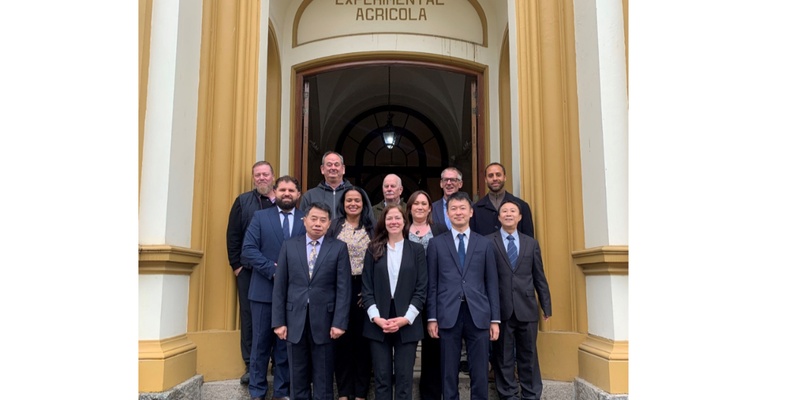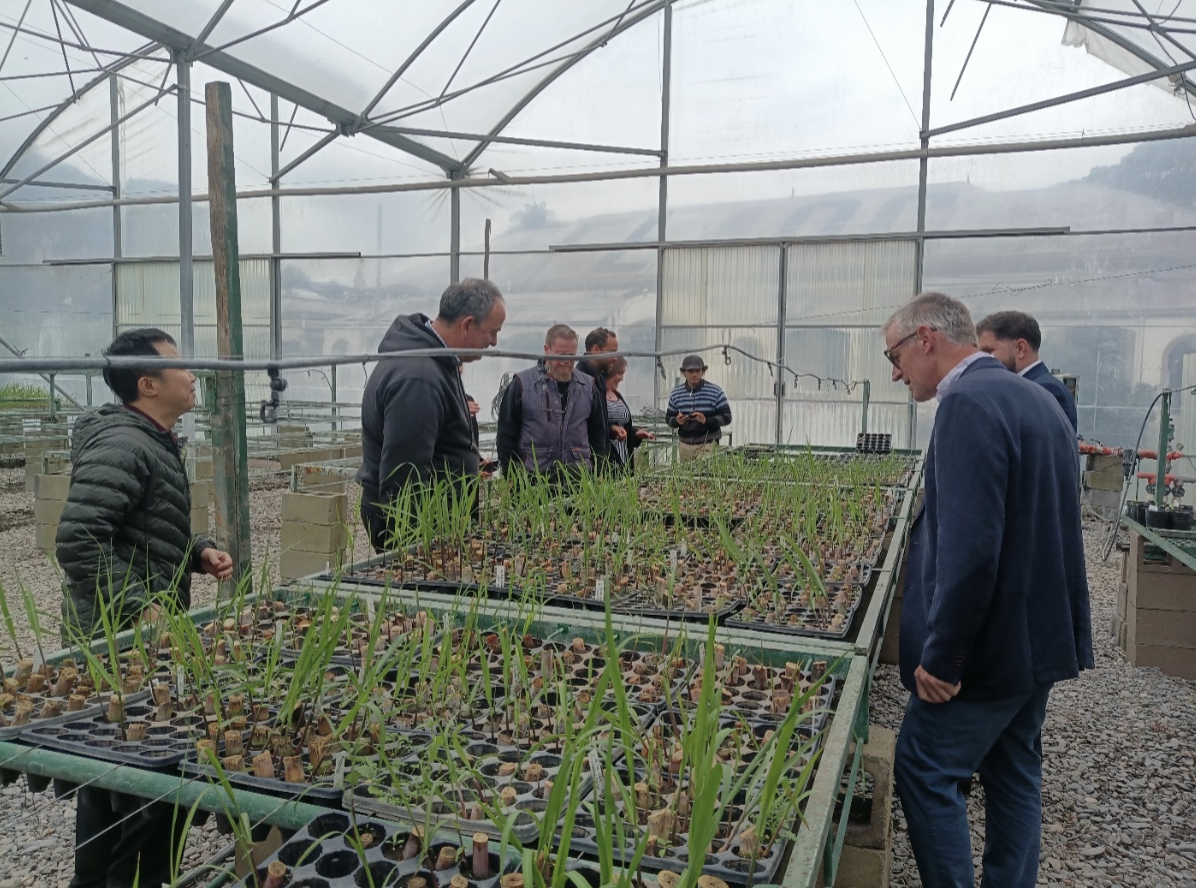Technical Panel on Phytosanitary Treatments (TPPT) concludes successful meeting hosted by Argentina's NPPO
Posted on Mon, 29 Jul 2024, 17:16

©Obispo Colombres Agricultural Experimental Station (EEAOC)
Tucuman, 25 July 2024. The Technical Panel on Phytosanitary Treatments (TPPT) successfully held its first face-to-face meeting for the year, hosted by Servicio Nacional de Sanidad y Calidad Agroalimentaria (SENASA), Argentina's national plant protection organization (NPPO), from June 24-28 June 2024. This is the first TPPT meeting hosted by an NPPO after the pandemic and a landmark event which marked a significant return to in-person collaboration for the TPPT, a vital component of the International Plant Protection Convention (IPPC) dedicated to developing and reviewing phytosanitary treatments to prevent the spread of pests and diseases through international trade.
The TPPT evaluates data submissions from NPPOs and RPPOs and reviews, revises and develops phytosanitary treatments. It provides guidance to the Standards Committee (SC) regarding specific phytosanitary treatment issues and evaluates treatment submissions against requirements in ISPM 28. The TPPT comprises ten members with expertise in irradiation, fumigation, temperature, modified atmosphere and chemical treatments. The panel's tasks are outlined in Specification TP 3 and its work programme includes maintaining the Phytosanitary Treatments Online Search Tool for international trade. Hosting the TPPT meeting, SENASA provided participants with the unique opportunity to visit the Obispo Colombres Agricultural Experimental Station. This leading facility in phytosanitary treatment development allowed participants to engage directly with local experts and observe advanced treatment technologies in action. Diego Quiroga, Director of Nacional de Protección Vegetal – SENASA and CPM Bureau member, who opened the meeting, highlighted the significance of the event for the IPPC and SENASA. "The selection of the place to hold the TPPT meeting is not a random choice given that there, where you are now, the headquarters of the Obispo Colombres Agricultural Experimental Station is located. The Agency has a key role in the province of Tucumán such as knowledge development applied to improve the competitiveness of the productive sector”, he said.
“The role of the TPPT is not only relevant as a technical forum to discuss phytosanitary treatments that will later become annexes to ISPM 28, but also for the entire IPPC community, given the relevance that phytosanitary treatments have in international trade for plant products. That is one of the reasons why we assign high importance to having these types of meetings in our country. Argentina is a leading supplier of agricultural commodities to the world and does so by applying and complying with ISPMs”, he added.
The TPPT reviewed its work programme, comprising of 16 phytosanitary treatments and one draft ISPM, and through these revisions, agreed on the appropriate next steps to progress each topic. One of the key recommendations agreed to by members was to advance the irradiation treatment for Epiphyas postvittana (2017-018) to the SC for approval for country consultation. This draft treatment is critical as it provides an effective measure against this pest, commonly known as the light brown apple moth, which affects a wide range of horticultural products including apples, pears and citrus, causing significant damage and economic losses. The development and approval of this treatment are essential for protecting these crops and ensuring the stability of international trade in horticultural products. TPPT members also assessed a new treatment submission of vapour heat (hot steam) treatment of coniferous bark for the elimination of Bursaphelenchus xylophilus, a pest known for causing pine wilt disease which leads to the rapid decline and death of affected trees, leading to extensive damage in forests and wood industries. TPPT members agreed to recommend this to the SC for inclusion in the TPPT’s work programme.
The panel discussed and reviewed efficacy calculation methods from the IPPC Procedure Manual for Standard Setting, as well as the criteria for the evaluation of potential ISPM 15 treatments. Updates on the continued liaison activities with the Ozone Secretariat, PMRG, and the International Forestry Quarantine Research Group were also presented. Further, TPPT members agreed to actively consider and seek out additional phytosanitary treatments for potential submission through NPPOs or RPPOs, to be added as subjects to the TPPT work programme.
Eduardo Willink, long-standing member of the TPPT who works in the Estación Experimental Agroindustrial Obispo Colombres expressed his appreciation for hosting the meeting in his hometown. "It is truly special and significant to convene our meeting here in Tucuman, a location that holds a unique connection to TPPT. Being in my hometown adds an extra layer of depth and meaning to our gathering, as we are not only immersed in the rich agricultural heritage of this region, but also benefit from the insights and perspectives shaped by the local expertise and experience”.
 ©Obispo Colombres Agricultural Experimental Station (EEAOC)
©Obispo Colombres Agricultural Experimental Station (EEAOC)

